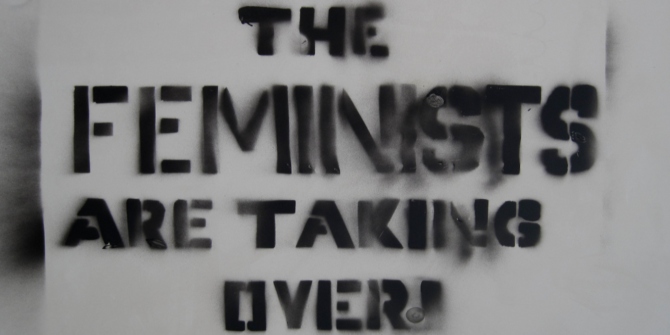Changing brand names is risky. Brand clarity, employee morale and customer trust are all at stake. In the case of Twitter, Eli Sopow compares Elon Musk’s moves to those of a cowboy. When Musk bought Twitter in 2022, he turned it into X in a haste, “[riding] it like a wild bull through a delicate and orderly China shop of international commerce”, eliminating jobs and destroying the company’s culture.
In business parlance “going cowboy” is equated with actions outside the norm, unexpected, and just a bit wild. Billionaire Elon Musk who appears to have adopted the American state of Texas as his favourite place to create a herd of electric cars on the open range of manufacturing, appears to have truly saddled up to the genre.
Texas is, of course, historically cowboy country. The wild west. Legendary gunfights, standing tall and alone in the face of nasty no-gooders and do-gooders, and defending the rights of (mostly) all. Some might say it hasn’t changed much.
In April 2022, Musk appeared at his “cyber rodeo” in Texas wearing jeans, a big belt buckle, and a cowboy hat to celebrate the construction of a giant new Tesla factory. Dozens of Teslas were arranged at the event in the shape of the state of Texas flag.
This year Musk decided to rebrand the company formerly known as Twitter to “X”. Now we all remember cowboy Musk acquiring Twitter in a curious and controversial move in October of 2022. At that time, he rode Twitter like a wild bull through a delicate and orderly China shop of international commerce, smashing careers, overturning a storied laidback culture of free vanilla lattes and backrubs, and digging his sharp spurs into anyone not deemed exceptional.
Much like assessing a herd of beef cattle destined to be fine steaks, Musk is quoted as saying in an email to employees, “This will mean working long hours at high intensity. Only exceptional performance will constitute a passing grade”. There were rumours of employees resorting to sleeping on the floor, akin to sleeping on the saddle when herding cows through a Texas lightning storm. It is not known if there were itchy bedrolls and late evening AI campfires with melancholy cowboy songs about lost-love gigabits.
But now let us ride into cowboy Musk’s current ranch work—the rebranding of the iconic brand Twitter with the powerful “X”.
If I ask a cowhand on a cattle ranch what “re-branding” means, they will tell this city slicker that the etymology of the word dates to the American wild west days of rustling (stealing) cows and then “rebranding” them with a hot steel brand that scorches a fake ownership symbol on the poor beasts. And so now we see “X” seared onto the body of Twitter.
In the world of marketing, switching brand names can be a risky strategy. Generally, those knowledgeable of such things warn of brand confusion, loss of employee morale, suspicion from customers and the news/social media, and what can be huge costs both financial and reputational. The lessons of getting bucked off are many.
Let us count the recent ways: “The New Coke,” “Coors Lite beer,” Mastercard messing around with a new logo that quickly reverted to the same-old, well-established Netflix changing its DVD shipping model to Qwikster, and in the Canadian province of British Columbia, the rebranding this year of a tried-and-true political brand the “BC Liberal Party” to the “United Party” just prior to by-elections. It resulted in a confusing debacle with voters thinking a new football club had arrived from England. While there may have been a few votes from Manchester United fans in Canada, the “United Party” sank in the polls.
As an associate professor of change management at University Canada West, our classes continually dissect the common human emotional reactions to fear of change. It is all too well known through the massive literature on the topic and my own research now with over 500 workplaces that most of us don’t like change. Especially if it brings uncertainty, poor communications, a sense of our powerlessness to do anything about it, a shake-up of what we thought was secure, and our ability to do what we normally do without yet more hassles.
Cowboy Musk seems to thrive on not just change, which can be very healthy when following an understandable process, but on sheer moment-to-moment chaos. He is a rodeo adrenalin junkie much like the tough men and women I meet participating in real rodeos where bones get broken, and dust gets eaten. But cowboy Musk is just playing at being a cowboy, despite his sprawling ranches and herds of obedient Teslas humming quietly in the night, and “ranch hands” dutifully doing what they are told.
At X formerly branded as Twitter, cowboy Musk seems to be ignoring many of the basics of a well-run, actual ranch with dedicated employees and owners involved in an agricultural commodity that we meat-eaters have some high expectations for based on a solid history of service and safety.
On cowboy Musk’s “X” ranch there is a continuing slew of almost daily change. The fences of common sense are being taken down and the clear boundaries of ethics, decency, and a sense of what’s right are being obliterated. The cattle are running wild, stomping on everything in their path, bad guys in black hats have saddled up and are roaming free and having their way. There is no longer a sheriff in town, and the barroom brawls are just beginning.
Cowboy Musk should hang up his hat and spurs.
- This blog post represents the views of its authors, not the position of LSE Business Review or the London School of Economics.
- Featured image provided by Shutterstock
- When you leave a comment, you’re agreeing to our Comment Policy.






Hello Professor
Very well explained and the way you have portrayed it, is amazing.Well done!
Highly entertaining and highly insightful.